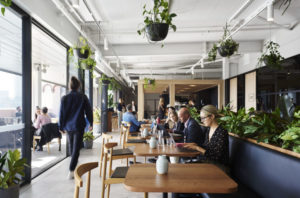The Third Space: how Covid will end a return to the office for a new way of gathering
Since the pandemic forced organisations around the world to finally embrace remote work, more and more people are having sea-change and tree-change moments. In Victoria’s coastal Mornington Peninsula, traditionally a popular second-home destination for wealthy Melbournians, property prices have soared by as much as 30% in the past 12 months. The peninsula’s mayor, Despi O’Connor, said that… Read more »




















